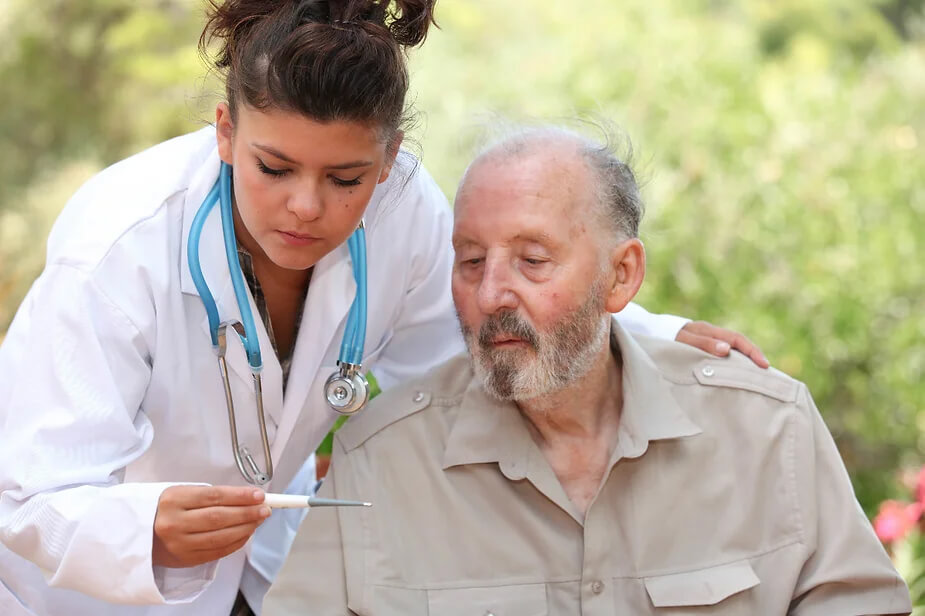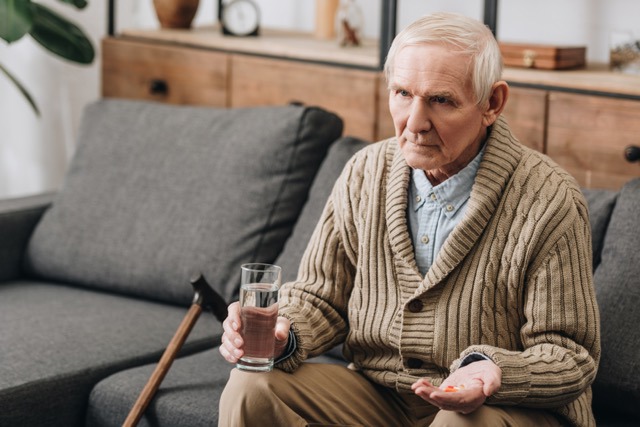Care and nursing are NOT the same thing
The difference between 24-hour-care and care.
"Nursing or care - isn't that the same thing?" Many people ask themselves this question when it comes to the care of Relatives goes. However, the terms are often confused - with costly misunderstandings as a result. Does your relative need household support or medical care? The right choice can not only significantly improve quality of life, but also provide financial relief.
In this article, we explain clearly and comprehensibly the difference between care and nursing, what tasks caregivers and nursing staff perform, what legal regulations and funding options are available and how you can find the best care solution for your individual situation.
Whether you need to make a decision for yourself or for a loved one, we'll help you make the right choice and avoid unnecessary costs.
24-hour care: support in everyday life
What tasks does a caregiver take on?
Gernot is 78 years old and proud of the fact that he still has a full head of hair for his age - as he says himself with a smile. But since the death of his partner, everyday life has become more difficult for him. He wants to stay in his own home, but needs support. But what exactly does that mean?
Since the care takes place in Gernot's private household, it is subject to the Home Care Act. This law was introduced in 1994 and stipulates that caregivers must either self-employed or employed.
Caregivers help with Household management and daily living. Their activities can be divided into five categories:
1. household services
- Go shopping and run errands
- Cooking and cleaning
- Washing and ironing laundry
- Pet and plant care
Also Gernot's dog Chipsy is also looked after by his carer.
2. support in everyday life
Caregivers help with the daily structure and remind you of appointments, meals or important tasks.
3. society and social support
Many older people suffer from loneliness. Regular Conversations, shared activities and emotional support are therefore particularly important.
Gernot looks forward to in-depth conversations, but his sons often have little time. His caregiver will listen to him and share memories with him.
4. organization and management of the budget
This includes keeping a budget bookas well as the Preparing for hospitalization or relocation.
5. support for mobility and hygiene
Caregivers may, unless there are medical reasons not to:
- Help you get up, lie down and walk
- Provide nutritional support
- Assist with dressing and undressing
- Help with toileting and Offering a change of incontinence products
A caregiver is not a Nurse, but can have a crucial support for a self-determined life at home.
Nursing: medical care and expertise
While caregivers focus on everyday life, nursing staff medical and nursing tasks. These activities are regulated in the Gesundheits- und Krankenpflegegesetz (GuKG).
What tasks does a nurse do?
Nurses are trained to medical measures and to provide special nursing support.
1. medication administration
- Administration of prescribed medication
- Injections of insulin and blood thinners
Example: Gernot needs blood-thinning medication due to circulatory disorders. A caregiver may not administer these - only a trained nurse may do so.
2. wound care and dressings
- Care of pressure ulcers (decubitus)
- Application of medical dressings (e. e.g. Allevyn, Grasolind, Inadine)
3. blood glucose and blood pressure measurement
- Conduct blood sugar tests with test strips
- Check blood pressure
4. special treatments
- Light and heat applications
- Medically prescribed treatments of comparable difficulty
Are caregivers allowed to take on nursing tasks?
Yes, but only under certain conditions.
Caregivers may take over some nursing activities, if:
- A medical or nursing Delegation exists
- The activity documented in writing is
- The statement only applies to the care period
A A caregiver cannot replace a caregiver, but may help in certain cases under supervision.
Exception: Family members may both maintain as well as care without the need for special authorization.
Important insights at a glance
- 24-hour-care means support in the household, everyday life and with social contacts.
- Caregiverse can help with basic care when no medical activities are required.
- Nurses take over medicallye tasks such as injections, wound care and medication administration.
- Nursing may only be carried out by caregivers following written instructions from a healthcare professional.
- Family members are exempt from this rule.
For more official information, please visit Website of the Ministry of Social Affairs.
The choice between Care and nursing is not always easy - but it is important for the well-being of your loved ones.
Does your family member need more support in everyday life or medical care? Now you know the differences and can make an informed choice.
- There is financial support that makes care and support easier.
- The choice depends on individual needs - often a combination makes sense.
- Quality counts - the right care or nursing significantly improves the quality of life.
Do you need the right support? Register now with noracares and find the right care or caregiver!
- Home Care Act - Regulates 24-hour care in Austria.
- Gesundheits- und Krankenpflegegesetz (GuKG) - Defines tasks of caregivers.
- Decubitus - Pressure ulcer due to prolonged lying.
- Blood thinner - Medication to prevent blood clots.






